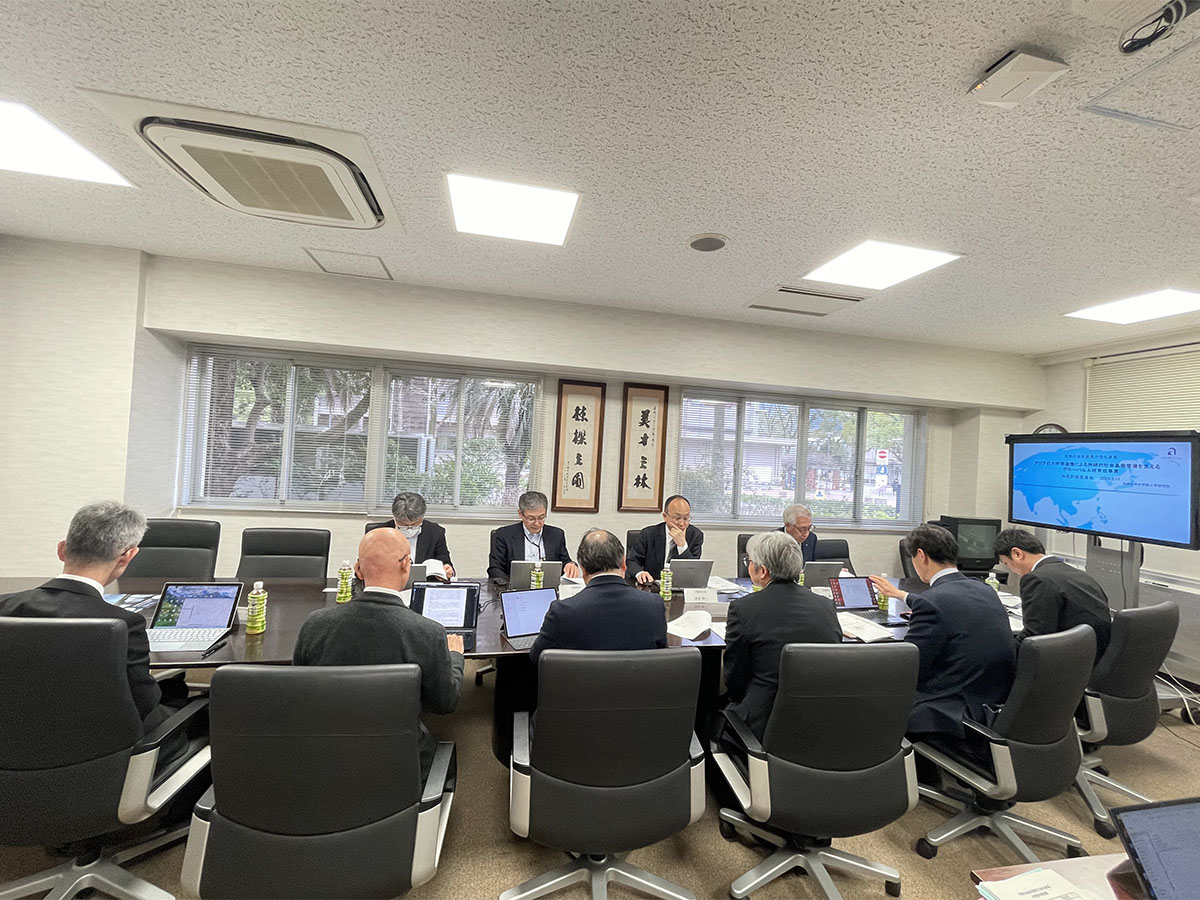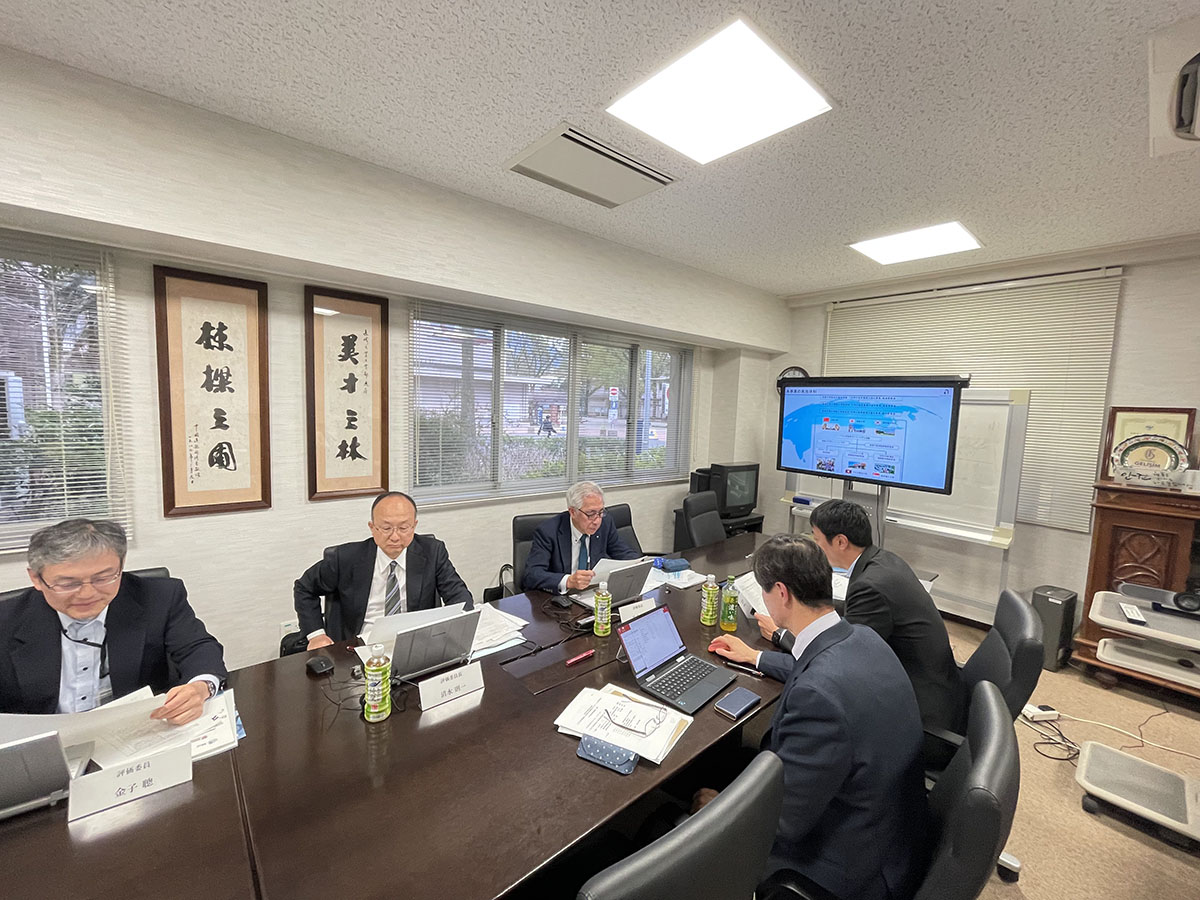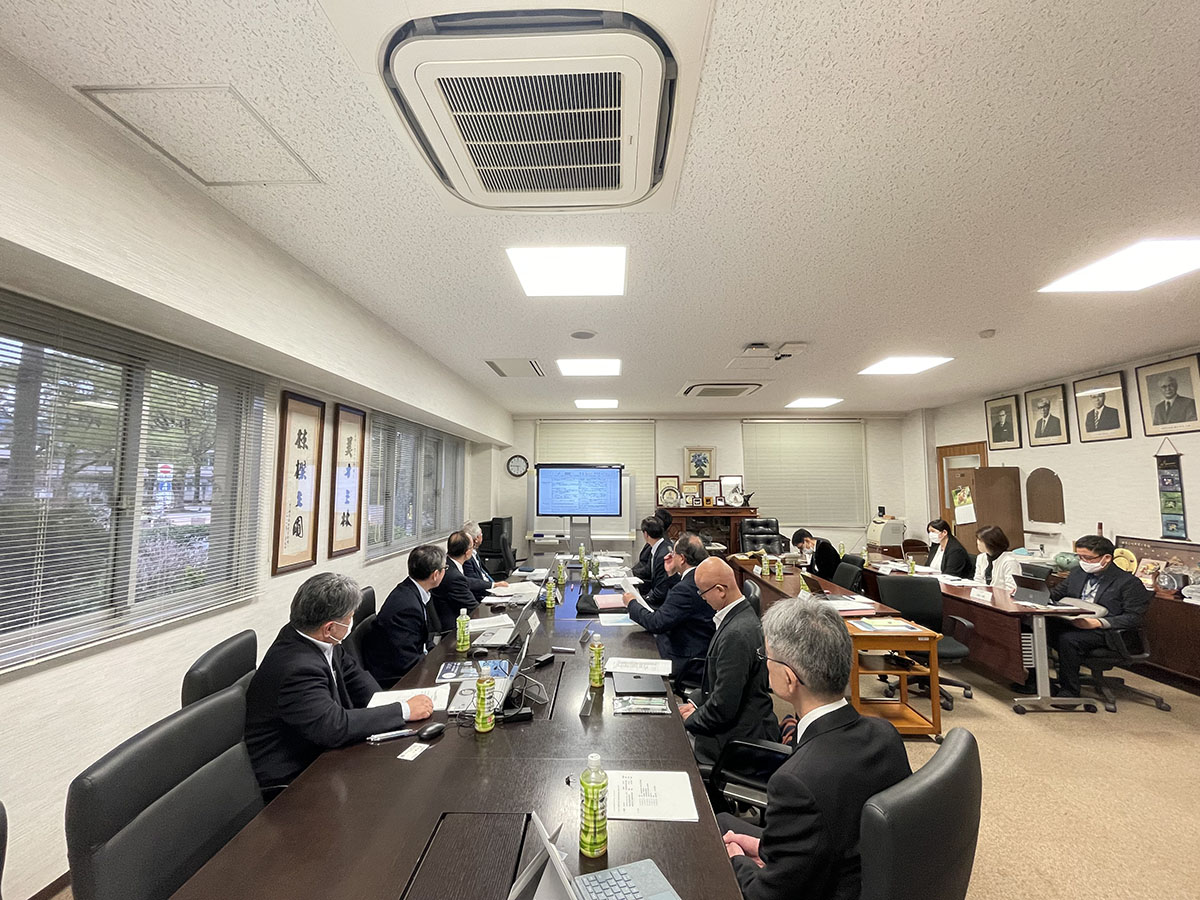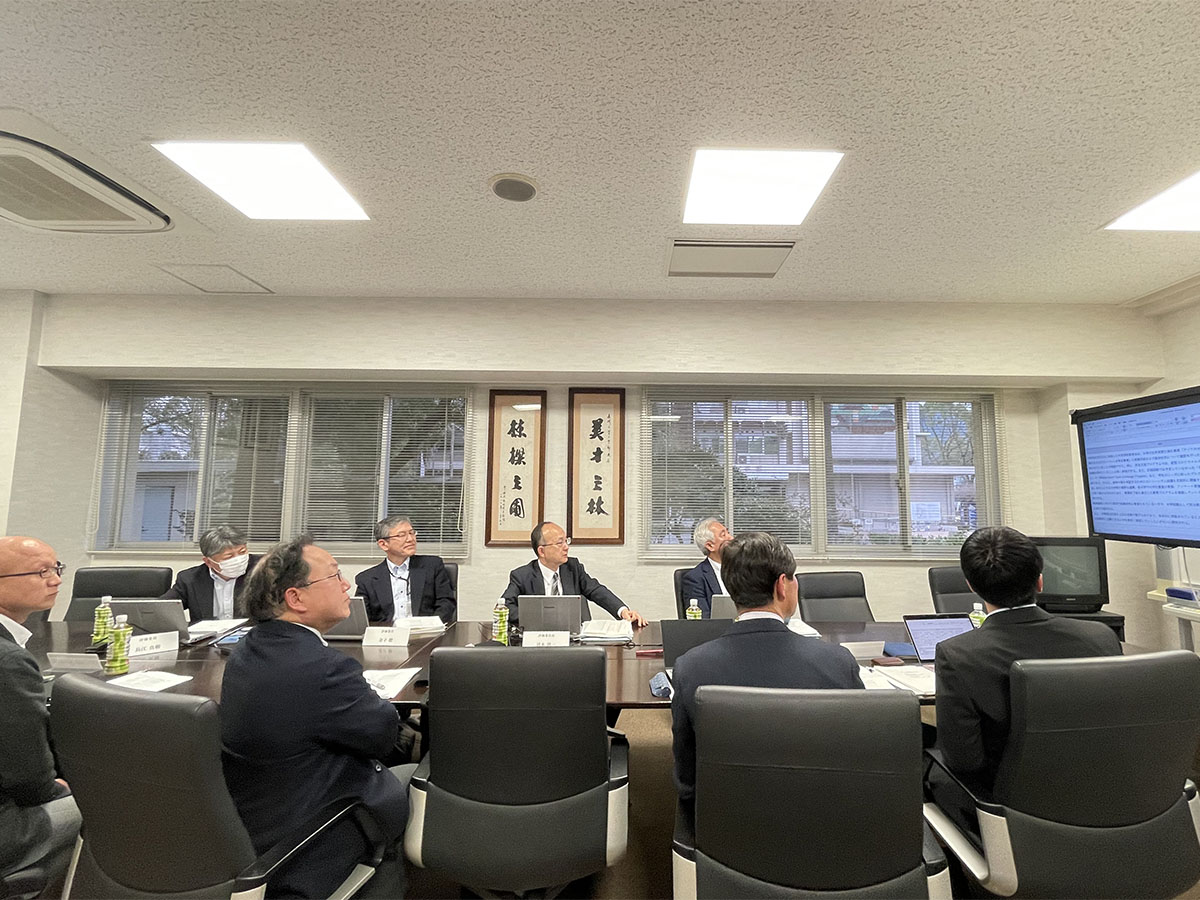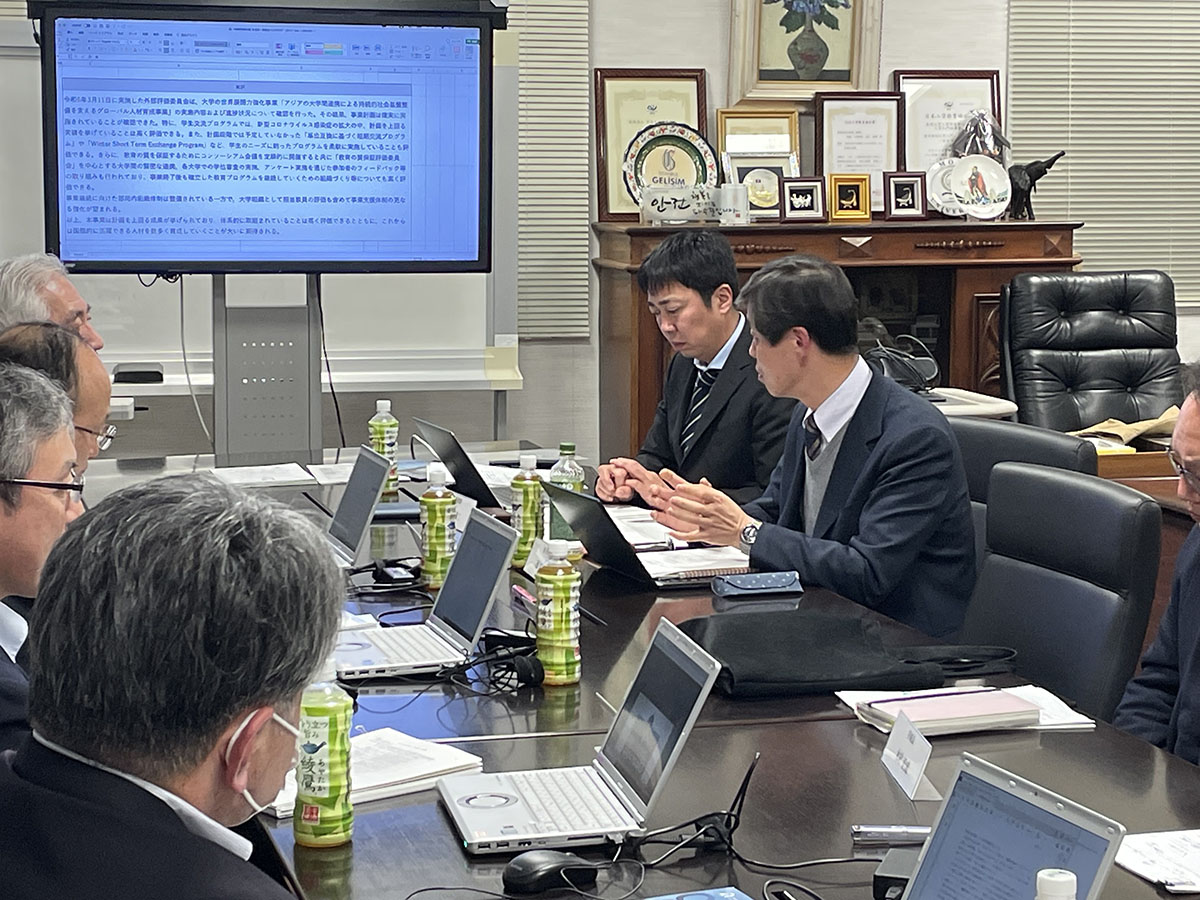The 1st External Evaluation Committee Meeting for Nagasaki University’s CAMPUS Asia Inter-University Exchange Project (Mode 3) was held.
The 1st External Evaluation Committee Meeting for the CAMPUS Asia Inter-University Exchange Project (Mode 3) was held on March 11, 2024, at Nagasaki University. The committee consisted of four members: Professor Emeritus of Yamaguchi University, Chairman of Dai Nippon Engineering Consultants, Professor of NU Graduate School of Biomedical Sciences, and Professor of NU Graduate School of Fisheries and Environmental Sciences. The purpose of the meeting was to review the implementation of the project “Asia Intercollegiate Cooperative Project for Nurturing Global Leaders in Sustainable Infrastructure Development” (Mode 3) to date, and discuss room for improvement for better implementation through the end of this project.
The meeting was opened with an address by Prof. Daisaku Sakaguchi, Dean of the Graduate School of Engineering, followed by an explanation by Assoc. Prof. Seiji Suzuki on the project’s 1) Overview (background, objectives, etc.), 2) Progress, and 3) Future Prospects. Next, the external evaluation committee members reviewed the results of the past 3 years since the beginning of this project (Mode 3). While we received generally high evaluations of our efforts in this project, we also received candid comments from various perspectives, including the need for a follow-up survey of alumni after their participation in this project, the need for more effective PR activities with specific figures, and the need for appropriate evaluation of the faculty members in charge and strengthening of the project support system by the university.
As an advisory body to the Consortium Steering Committee for Human Resource Development in Infrastructure, the external evaluation committee consisting of experts from inside and outside the university was convened to evaluate and verify the status of the project, including the content of the student exchange program, quality of education, and appropriate PR, thus enabling us to make continuous improvements based on the recommendations and opinions of the committee. In the evaluation report by the committee, it is stated, “It is highly commendable that the project plan has been steadily implemented, including regular consortium meetings to guarantee the quality of the student exchange program and education. While the appropriate organizational structure within the department is in place for the continuation of the project, further strengthening of the project support system as a university organization, including appropriate evaluation of the faculty members in charge, is desired.” The external evaluation report will be posted on our website in due course.
We will take the valuable feedback from the committee seriously and use it to further develop our project for the next two years until the end of the project’s implementation period (Mode 3).
